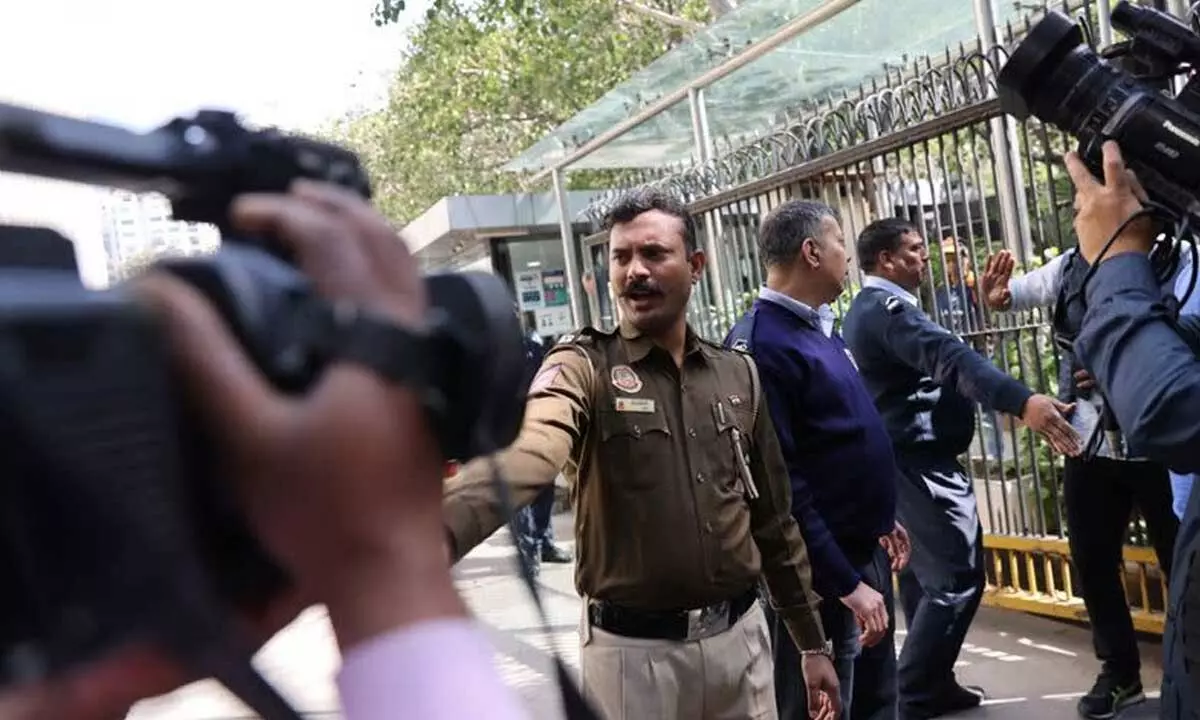We stand up for BBC: UK govt in Parliament after I-T survey

We stand up for BBC: UK govt in Parliament after I-T survey
David Rutley, Parliamentary Under-Secretary of the FCDO, pointed to a "broad and deep relationship" with India which meant the UK was able to discuss a wide range of issues in a "constructive manner".
London: The British government has strongly defended the BBC and its editorial freedom in Parliament after the Income-Tax department's survey operations on the UK-headquartered media corporation's New Delhi and Mumbai offices over three days last week. A Foreign, Commonwealth and Development Office (FCDO) junior minister responded to an urgent question raised in the House of Commons on Tuesday to say that the government cannot comment on the allegations made by the I-T department over an "ongoing investigation" but stressed that media freedom and freedom of speech are essential elements of "robust democracies".
David Rutley, Parliamentary Under-Secretary of the FCDO, pointed to a "broad and deep relationship" with India which meant the UK was able to discuss a wide range of issues in a "constructive manner". "We stand up for the BBC. We fund the BBC. We think the BBC World Service is vital. We want the BBC to have that editorial freedom," said Rutley.
"It criticises us (government), it criticises the (Opposition) Labour party, and it has that freedom that we believe is so important. That freedom is key, and we want to be able to communicate its importance to our friends across the world, including the government in India," he said. Updating the Commons on the issue, the minister said India's I-T department conducted what has been described as a survey on the BBC's offices in New Delhi and Mumbai, beginning on February 14 and finishing after three days, on February 16.
Highlighting that the BBC is "operationally and editorially independent", the minister said the public broadcaster plays an important role and the FCDO funds services in 12 languages, including four Indian languages: Gujarati, Marathi, Punjabi and Telugu. "It will continue to do so, because it is important to ensure that our voice — and an independent voice, through the BBC — is heard throughout the world," he said. Pressed on by Opposition MPs on the "deeply worrying raids" and asked about discussions with the Indian government, the minister added: "It is because of our broad and deep relationship with India that we are able to discuss a wide range of issues in a constructive manner with its government. As part of those conversations, this issue has been raised and we continue to monitor the situation."
















